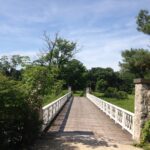
- Mobile Beacon is dedicated to providing affordable, mobile, high-speed internet access to schools, libraries, and nonprofits so they can better carry out their missions. They have research papers at https://www.mobilebeacon.org/research/ on bridging the gap and creating opportunity through connectivity.
- Mobile Citizen believes that making high-quality mobile internet available at an affordable price contributes to an engaged public and ultimately a more equitable democracy. They have case studies at https://mobilecitizen.org/resources/case-studies/ on youth guidance, mobile hotspots during disaster relief, immigrants, workforce, and many others.
- Many communities, typically working with the United Way, use the 211/311 phone service to help provide answers for residents looking for digital inclusion assistance, and it’s a good resource to know about and participate in.
If you know of other resources that should be here, please let us know.
Libraries, community-based organizations, local governments, housing authorities and others in cities across the country have organized coalitions to cooperatively address equitable access and use of communication technologies. This Guidebook, assembled by NDIA, reflects lessons learned from six established community-wide digital inclusion coalitions.
NDIA has also started tracking digital inclusion initiatives that have multiple partners in the community.
Broadband Connectivity Alternatives
This page contains some resources for community-based alternatives to the services provided by Internet Service Providers (ISPs),
Finding Broadband
Bill Callahan of Connect Your Community has put together a Map of NDIA affiliates providing broadband adoption services. Locate one in your area.
There are a number of low cost access options available for end-users as well as nonprofits, schools and libraries. Read about it here.
